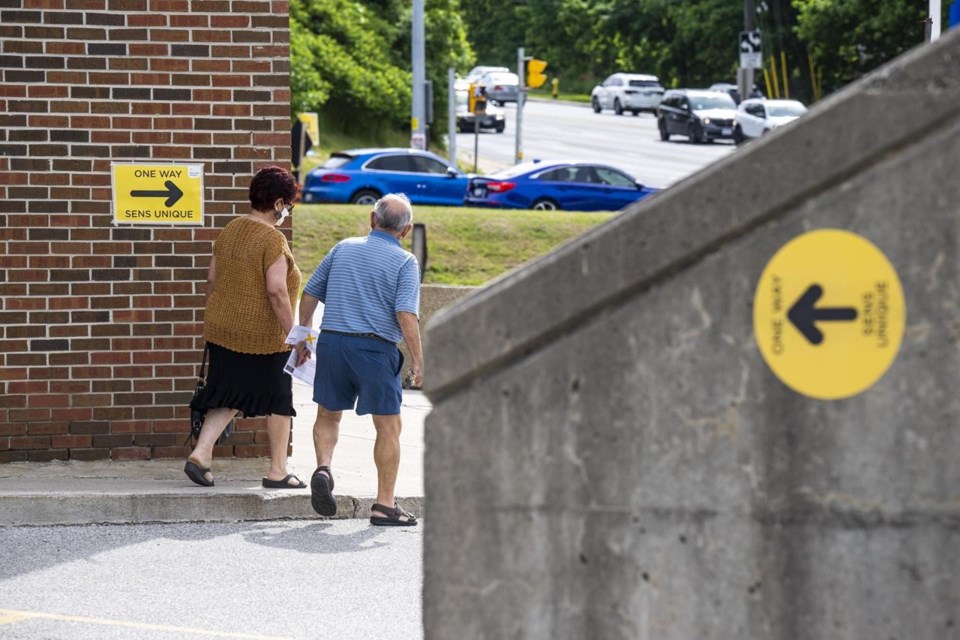Nour Kadri has attended hundreds of community events, participated in several debates and amassed nearly 400 volunteers as he runs for Ottawa mayor and now the self-described underdog says he feels his campaign is finally being noticed.
Kadri, a professor at the University of Ottawa, hasn't held public office before and is one of 14 candidates who have put their names forward for the city's top job after longtime mayor Jim Watson opted not to seek re-election.
It's an open, crowded race, with much attention focused on three perceived front-runners – a former mayor, a city councillor and a former journalist – but Kadri says he sees it as an opportunity for voters to opt for a fresh face.
"They're looking for something to vote for, rather than vote against," says Kadri, who pitches himself as a "coalition-builder."
"When I become mayor, the City of Ottawa is definitely going to be run through a lens of transparency and accountability like we've never seen before."
A number of Ontario cities – including Ottawa, Thunder Bay, Hamilton and Vaughan – are seeing competitive mayoral races ahead of this month’s municipal elections after incumbent mayors chose to bow out. Those vying for the top jobs say they hope to breathe new life into the roles.
In Ottawa, stakes in the city's mayoral race are particularly high after the provincial government passed legislation granting the leaders of Ottawa and Toronto so-called strong mayor powers in a bid to get housing built more quickly.
Catherine McKenney, a city councillor and one of the perceived front-runners, says there's been a lot more attention paid to this election than there has been to the mayoral contest in over a decade in Ottawa.
"It's meant a more robust discussion on the future for Ottawa and the potential for what we can do in the city," McKenney says.
McKenney, who uses gender-neutral pronouns, acknowledged the advantages that come with being a known name in the city but said they still have to work hard to get their priorities across to voters.
"The challenge is a bit more about ensuring my platform and vision is received across the city," McKenney says, adding that their platform prioritizes improving transit, housing affordability and bringing Ottawa on track to reach net-zero emissions by 2050.
Open races in municipal elections tend to be more exciting, see higher voter turnout and gain more media attention on the issues candidates are talking about, says Kate Graham, a political science professor at Western University and Huron College.
It can be difficult for new candidates to quickly build the kind of reputation enjoyed by incumbents, but there are advantages to being a fresh face in the race, Graham says.
Candidates who have previously held public office largely have to run on their record, she says, while newcomers tend to start off with a typically clean slate.
"It's easier for those who are fresh-faced to be able to separate themselves from negative or polarized decisions in the past," she says. "But it comes with the added burden of having to establish a relationship and familiarity with voters."
One-third of Ontario's 30 largest municipalities have open mayoral races this election cycle, Graham says.
"That's higher than average," she says.
Graham suspects the strain of the pandemic, political polarization, low levels of trust in governments and vitriol faced by those in public roles are contributing factors to the large number of incumbent mayors not seeking re-election.
"We see a lot of people stepping up and running for the very first time in the wake of what has been a really challenging few years," she says. "It will mean there are different faces around council horseshoes over the next four years, which may be a good thing."
For Thunder Bay, Ont., mayoral candidate Clinton Harris, running for the top office stemmed from a desire to make sure political promises lead to action.
The former publisher of the local Chronicle Journal newspaper is a recognizable name in the community and has served on several local boards.
He says one of the first things he did during his campaign was publicly post his resumé to show voters he has the work experience and track record needed for the job.
"It's a job application," he said. "I'm not running for mayor, I'm applying for this job."
Harris said he was motivated to run after his daughter's friend died of a fentanyl overdose. His top priorities, he said, would be to address the lack of support he sees for addictions and homelessness in the city.
"All of these issues go on deaf ears and the silence from our current political leaders here has been quite concerning," he says. "Promises made, none kept."
Municipal elections across Ontario are set for Oct. 24.
This report by The Canadian Press was first published Oct. 15, 2022.
———
This story was produced with the financial assistance of the Meta and Canadian Press News Fellowship.
Tyler Griffin, The Canadian Press



